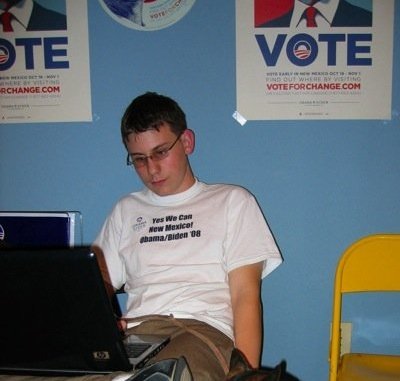If the foreign diplomats in New York for the opening of the United Nations General Assembly late last month could [vote], they'd go for Sen. Barack Obama.BBC News's poll of 22,500 people in 22 countries confirmed that Obama is "favoured by a four-to-one margin." The Guardian, in association with eight other newspapers, including Le Monde (France), Yomiuri Shimbun (Japan), La Presse (Canada), and Reforma (Mexico), corroborates these results. Gallup polls conducted in 73 countries have shown a 3-1 margin of support for Obama. I think the evidence speaks for itself, but at the risk of being redundant I shall say again that the World wants Barack Obama to win.
Why do they want him to win? What is so different about Americans that we are don't have these huge polling margins for Obama? Perhaps we see something, a darker side to Obama, or a lighter side to McCain, that the rest of the world doesn't see. Perhaps the polls were rigged by communists. Plausible theories, all. However, I think that these polls reflect a fundamental difference in values between American and the rest of the world. We've seen this kind of split before - on climate change, on the International Crminal Court, on Iraq, on the United Nations, ad infinitum - but we have never seen it on a "domestic" issue.
We've never seen the world so interested in a domestic American issue before because the President of the United States has never been the position it is now - the election of a President is now an international issue because of the power weilded by the office-holder. The President apparently has the authority to violate national sovereignty, dismiss members of international border councils, and break US soldiers out of international jails. The title "the President of the United States" is barely adequate nowadays, as it implies both parity with the heads of state of other nations and a limitation of power to American soil - neither is true.
Yes, you can call the occupant of the office of the President "the Leader of the Free World," as they have been since the Cold War, and it's true that the President weilded an immense amount of international clout in the '50s through the '90s, but in the post-9/11, post-Bush world where "the US sneezes and the rest of the world catches cold," the rest of the world is just as invested, and perhaps more so, as America is in this election.
P.S. Sometime I want to do a big post or a series of posts analyzing this campaign. Maybe I'll get to it after Tuesday.
P.P.S. Tomorrow I'll be doing another post exchange with Kelsey over at Plastic Manzikert. It's something different, but I think it's really quite interesting, so do tell me what you think, all three of you.
P.P.P.S. This post was inspired by a very good article by Andrew Rawnsley of the Observer (UK) about Barack Obama and his rather surprising campaign. I encourage you to read it, not just because it's damned good, but because it gives another perspective on the American race for the White House. Speaking of new perspectives, if you haven't already, check out the Onion's coverage of "The War for the White House," it's very entertaining and truthy.


No comments:
Post a Comment